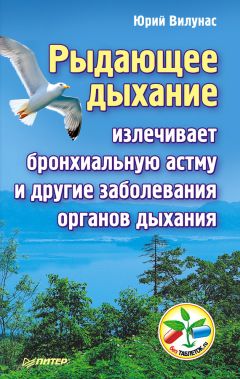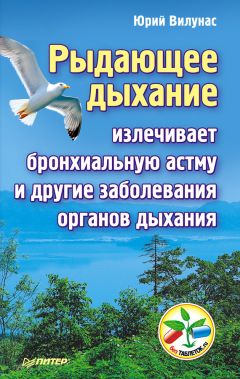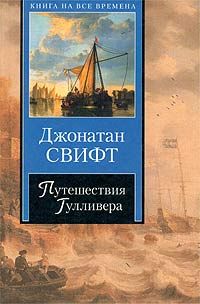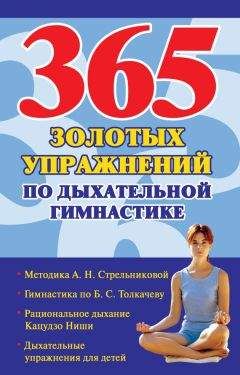Джонатан Свифт - Английский язык с Джонатаном Свифтом. Путешествия Гулливера
mountain ['maVntIn], calm [kRm], bridle [braIdl], admiration ["xdmq'reIS(q)n]
The Emperor came towards me on horseback. The horse reared in fright. I must have looked like a moving mountain. However, His Majesty managed to calm the horse and kept his seat. His servants held the bridle while he got down. He looked at me with great admiration, but remained beyond the chain that tied me. He told the servants to give me food and drink. They pushed the food forward on vehicles with wheels, until I could reach it. Twenty of these vehicles were filled with meat and ten with drink.
The Emperor was taller than the others of his Court (император был выше всех своих придворных: «других /особ/ своего двора»). He looked strong and manly (он выглядел сильным и мужественным), with an arched nose (с /своим/ орлиным: «изогнутым» носом; arch — арка; дуга; to arch — изгибать/ся/ дугой) and slightly dark skin (и слегка смуглой кожей). He held his head high (он высоко держал голову) and moved with grace (и изящно: «с грацией/изяществом» двигался). He was about twenty-eight years old (ему было около двадцати восьми лет). His seven years as Emperor had been happy (его семь лет в качестве императора = те семь лет, в течении которых он царствовал, были счастливыми/благополучными) and generally victorious (и большей частью победоносными; victory — победа).
tall [tLl], slightly ['slaItlI], victorious [vIk'tLrIqs]
The Emperor was taller than the others of his Court. He looked strong and manly, with an arched nose and slightly dark skin. He held his head high and moved with grace. He was about twenty-eight years old. His seven years as Emperor had been happy and generally victorious.
I lay down on my side (я лег на бок) in order to see him better (для того чтобы лучше его видеть). He was dressed in a very plain and simple style (одет он был в очень скромной и простой манере; plain — простой; ясный; незамысловатый, обыкновенный, без украшений), partly European and partly Oriental (частью европейской, частью азиатской). He wore a helmet of gold with jewels and a feather (/на голове/ у него был золотой шлем с драгоценными камнями и пером; to wear — носить /одежду, парик, бороду и т. п./; иметь надетым). He held his sword in his hand (он держал в руке шпагу; sword — меч; шпага, рапира; сабля и т. п.), ready to defend himself if I broke loose (готовый защищать себя, если бы я разорвал цепь: «сорвался/освободился»). The sword was almost three inches long (шпага была длиной почти в три дюйма). He spoke in a very clear voice (говорил он очень чистым/отчетливым голосом; clear — светлый, ясный; звонкий, отчетливый; чистый /без изъянов/). I could hear what he said (я мог слышать /то/, что он говорил; to say), even when I was standing up (даже стоя: «когда я стоял прямо»).
jewel ['GHql], feather ['feDq], sword [sLd], said [sed]
I lay down on my side in order to see him better. He was dressed in a very plain and simple style, partly European and partly Oriental. He wore a helmet of gold with jewels and a feather. He held his sword in his hand, ready to defend himself if I broke loose. The sword was almost three inches long. He spoke in a very clear voice. I could hear what he said, even when I was standing up.
His Majesty said several things to me (его величество несколько раз говорил мне что-то: «сказал мне несколько вещей»; thing — вещь; нечто, что-то), and I answered him (а я ему отвечал). But neither of us could understand a word (но ни один из нас не понимал: «/не/ мог понять» ни слова) the other said (/из того, что/ говорил другой). There were some priests and lawyers present (там /же/ находились несколько священников и юристов; present — присутствующий; law — закон) — as I guessed by their style of dress (как я заключил по покрою их одежды; guess — /от/гадать; догадаться; style — стиль, манера; род, тип; фасон; покрой). They were told to speak to me (им было приказано заговорить со мною = вступить со мной в разговор; to tell —говорить; велеть, приказывать). I replied in German, Latin (я отвечал по-немецки, на латыни), in French, Spanish and Italian (по-французски, по-испански и по-итальянски), but without result (но это не привело ни к чему: «без результата»). I was then left with a strong guard (потом я был оставлен вместе с сильным караулом) to protect me from the crowd (для того чтобы защитить меня от толпы).
lawyer ['lLjq], reply [rI'plaI], crowd [kraVd]
His Majesty said several things to me, and I answered him. But neither of us could understand a word the other said. There were some priests and lawyers present (as I guessed by their style of dress). They were told to speak to me. I replied in German, Latin, in French, Spanish and Italian, but without result. I was then left with a strong guard to protect me from the crowd.
I sat on the ground by the door of my house (я сидел на земле у двери моего дома). Some people began shooting arrows at me (некоторые люди начали пускать в меня стрелы; to shoot — стрелять). When one arrow just missed my left eye (когда одна стрела чуть не попала мне в левый глаз; to miss — промахнуться, не попасть /в цель/), the guards took hold of six of these people (стражники схватили шестерых из этих людей). They were tied up and put into my hands as a punishment (они были связаны и положены = их связали и передали в качестве наказания в мои руки; to put — класть, ставить; помещать; to punish — наказывать). I put five of them into my coat pocket (я положил пятерых из них в карман кафтана; coat — пиджак; китель; куртка и т. п.; пальто). I pretended I was going to eat the sixth one alive (/и/ сделал вид, /будто/ собираюсь съесть живьем шестого; to be going to… — собираться, намереваться /что-л. сделать/; может употребляться для выражения будущего времени). The poor man screamed terribly (бедный человечек ужасно/отчаянно завизжал). The officers were terrified (офицеры пришли в ужас; officer — чиновник, должностное лицо; офицер; командир; полицейский), especially when they saw me take out my penknife (особенно когда увидели, что я вынул из кармана перочинный нож; pen — перо /писчее/; ручка). But I cut the strings that tied him (но я разрезал связывавшие его веревки), put him gently on the ground (осторожно поставил его на землю; gently — мягко, нежно; осторожно, спокойно) and away he ran (и он /тут же/ убежал). I took the others out of my pocket one by one (по одному я вынул остальных из кармана). I could see both the soldiers and the people were very grateful for my mercy (я увидел, что и солдаты, и народ были /мне/ очень благодарны за мое милосердие; both — оба, обе; both… and… — и… и….; как…, так и…).
punishment ['pAnISmqnt], penknife ['pennaIf], soldier ['sqVlGq]
I sat on the ground by the door of my house. Some people began shooting arrows at me. When one arrow just missed my left eye, the guards took hold of six of these people. They were tied up and put into my hands as a punishment. I put five of them into my coat pocket. I pretended I was going to eat the sixth one alive. The poor man screamed terribly. The officers were terrified, especially when they saw me take out my penknife. But I cut the strings that tied him, put him gently on the ground and away he ran. I took the others out of my pocket one by one. I could see both the soldiers and the people were very grateful for my mercy.
During the next two weeks (в течение следующих двух недель), the Emperor ordered a bed to be made for me (по приказанию императора для меня была изготовлена постель: «император приказал /чтобы/ постель была сделана…»). Six hundred beds were brought and sewn together (шестьсот матрасов были привезены и сшиты вместе; to bring — приносить, привозить; приводить; доставлять; to sew). One hundred and fifty made up the length and width (сто пятьдесят /штук/ составляли один слой: «длину и ширину»; to make up — составлять; пополнять, возмещать), and when quadrupled (и когда четыре слоя были уложены друг на друга; to quadruple — учетверять, увеличивать в четыре раза; делать в четырех экземплярах), were enough to keep me off the hard stone floor (/то этого/ было достаточно для того, чтобы оградить меня от твердого каменного пола; to keep off — держать в отдалении; не подпускать). They gave me the same number of sheets, blankets and covers (мне дали такое же количество простыней, одеял и покрывал; to give), enough to make me comfortable (достаточное для того, чтобы я мог удобно устроится; comfortable — уютный, удобный).
sewn [sqVn], quadruple ['kwOdrVp(q)l, kwO'drHpl], comfortable ['kAmf(q)tqb(q)l]
During the next two weeks, the Emperor ordered a bed to be made for me. Six hundred beds were brought and sewn together. One hundred and fifty made up the length and width, and when quadrupled, were enough to keep me off the hard stone floor. They gave me the same number of sheets, blankets and covers, enough to make me comfortable.
The Emperor and his Court held frequent meetings (император и его двор держали частые советы; to meet — встречаться; собираться; meeting — встреча; собрание, заседание) to decide what to do with me (чтобы решить, что со мной делать), I was told afterwards (/так/ мне рассказали позже). They were worried about my breaking loose (они беспокоились, как бы я не разорвал цепи; «были озабочены/обеспокоены по поводу моего /возможного/ освобождения») and about the amount of food I needed (и относительно количества еды, /в котором/ я нуждался). They considered poisoning me (они подумывали /о том, чтобы/ отравить меня; to consider — рассматривать, обсуждать; обдумывать, продумывать; poison — яд, отрава; to poison — отравлять), but then it was pointed out (но потом приняли во внимание: «было указано/отмечено») that such a large carcass might produce a plague in the kingdom (что такая большая туша /мертвое тело/ может вызвать чуму в королевстве).
frequent ['frJkwqnt], worried ['wArId], consider [kqn'sIdq]
The Emperor and his Court held frequent meetings to decide what to do with me, I was told afterwards. They were worried about my breaking loose and about the amount of food I needed. They considered poisoning me, but then it was pointed out that such a large carcass might produce a plague in the kingdom.
When two army officers told the Court (когда два армейских офицера сообщили двору = при дворе) how I had treated the six criminals (как я поступил с шестью злоумышленниками/преступниками) who had shot arrows at me (которые пускали в меня стрелы; to shoot), His Majesty was very impressed (на его величество это произвело большое впечатление; to impress — штамповать; оттискивать; запечатлевать, оставлять след /в сознании/; производить впечатление, поражать). He ordered all the villages around the city (он обязал все деревни вокруг столицы) to deliver six cows and forty sheep every morning for my food (доставлять каждое утро /по/ шесть быков и сорок баранов для моего пропитания; food — пища, питание; еда), together with bread and wine (вместе с хлебом и вином). This was paid for by His Majesty's Treasury (/все/ это оплачивалось казначейством его величества; to pay). The Emperor lived on his own land (император жил на доходы со своих собственных землевладений; to live on smth. — жить на какие-л. средства, за счет чего-л.) and seldom demanded any income from his subjects (и редко требовал каких-либо выплат от своих подданных; income — поступление /чего-л./; доход, приход, прибыль).




